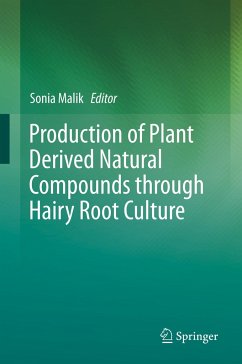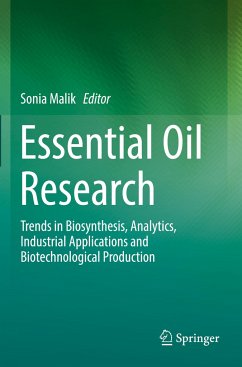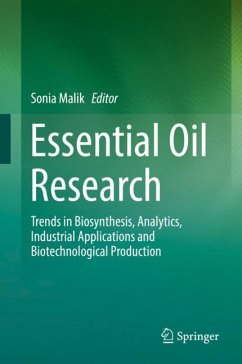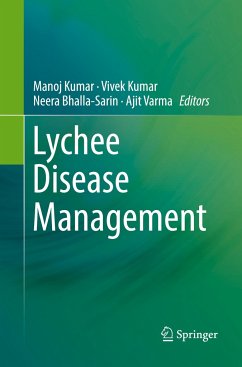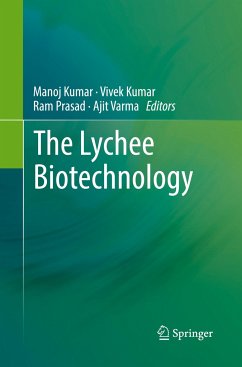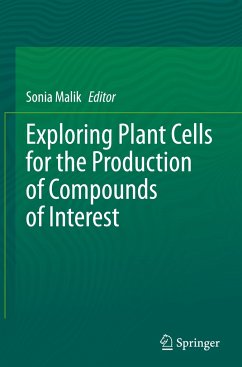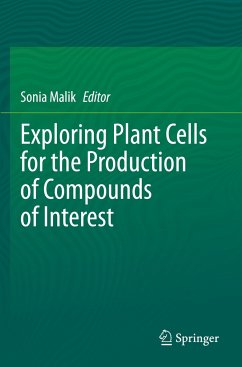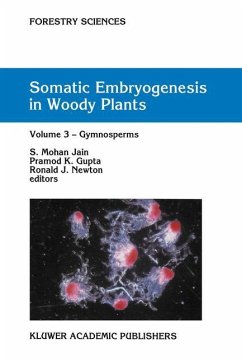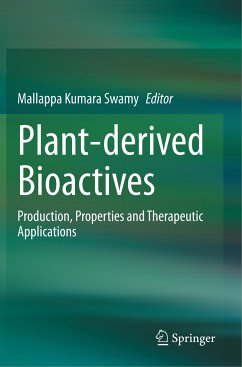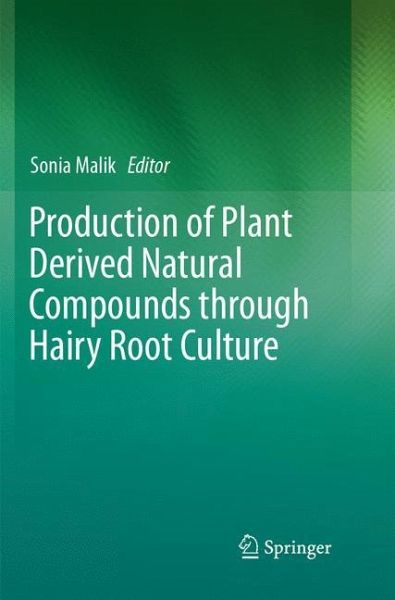
Production of Plant Derived Natural Compounds through Hairy Root Culture
Versandkostenfrei!
Versandfertig in 6-10 Tagen
76,99 €
inkl. MwSt.

PAYBACK Punkte
38 °P sammeln!
This book provides the latest information about hairy root culture and its several applications, with special emphasis on potential of hairy roots for the production of bioactive compounds. Due to high growth rate as well as biochemical and genetic stability, it is possible to study the metabolic pathways related to production of bioactive compounds using hairy root culture. Chapters discuss the feasibility of hairy roots for plant derived natural compounds. Advantages and difficulties of hairy roots for up-scaling studies in bioreactors are included as well as successful examples of hairy roo...
This book provides the latest information about hairy root culture and its several applications, with special emphasis on potential of hairy roots for the production of bioactive compounds. Due to high growth rate as well as biochemical and genetic stability, it is possible to study the metabolic pathways related to production of bioactive compounds using hairy root culture. Chapters discuss the feasibility of hairy roots for plant derived natural compounds. Advantages and difficulties of hairy roots for up-scaling studies in bioreactors are included as well as successful examples of hairy root culture of plant species producing bioactive compounds used in food, flavors and pharmaceutical industry. This book is a valuable resource for researchers and students working on the area of plant natural products, phytochemistry, plant tissue culture, medicines, and drug discovery.



